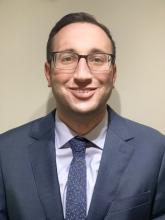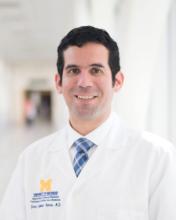Sleep medicine
Time to move the dial: Sleep and burnout in health care workers during the COVID-19 pandemic
Although the interaction between sleep, mood disorders, and burnout is well established, many of us are still sleep-deprived. A cross-sectional study of over 800 health care workers during the pandemic stay-at-home orders in March 2020 reported that those working in-person had shorter sleep times and worse mood, while those with longer sleep times had improved mood (Conroy DA, et al. J Clin Sleep Med. 2021;17[2]:185). Even prior to COVID-19, many trainees were facing issues with sleep deprivation and burnout (Sharp M, et al. Chest. 2021;159[2]:733).
One year into the pandemic, we continue to face a unique set of hardships, exacerbating underlying sleep disorders such as insomnia, feelings of burnout, and mental health problems. An international team led by Dr. Joel Goh calculated the cost of burnout and its economic impact on the nation’s health care system and estimated this at $4.6 billion per year (Han S, et al. Ann Intern Med. 2019;170[11]:784). National medical organizations, including the National Academy of Medicine and the American Medical Association, have also placed greater emphasis on clinician well-being and resilience. Practical frameworks for creating wellness during the pandemic exist; however. senior-level executive champions are critical for implementation (Adibe B, et al. N Engl J Med Catalyst. Jun 2020). While the long-term impact remains unknown, the current state of sleep and mental health problems and the cost of burnout should be a warning to health systems and institutions to implement remedial interventions now.(“Taking action against burnout: A systems approach to professional well-being,” National Academies of Sciences, Engineering, and Medicine, October 2019.
Nancy H. Stewart, DO, MS, Steering Committee Member
Thoracic oncology
Impact of COVID-19 on lung cancer screening
Lung cancer is the leading cause of cancer-related death worldwide and COVID-19 is making this worse. Prior to the COVID-19 pandemic, despite evidence of improved mortality, the uptake of lung cancer screening (LCS) was quite low with only 4% of those eligible having undergone screening in 2015 (Jemal A, et al. JAMA Oncol. 2017;3[9]:1278).
As the COVID-19 pandemic unfolded, health care resources were re-allocated to critically ill patients and areas, and nonurgent care was postponed. Therefore, LCS programs were halted (Mazzone PJ, et al. Chest. 2020;158[1]:406). This led to concerns that fewer patients would undergo screening and more patients would experience delays in cancer diagnosis.
Using population-based modeling, researchers in England estimated the COVID-19 pandemic will result in decreased lung cancer survival and a subsequent increase in avoidable cancer deaths (Maringe C, et al. Lancet Oncol. 2020;21[8]:1023). And in fact, investigators in Spain found fewer new lung cancer diagnoses during the COVID-19 pandemic compared with the same time-period pre-pandemic, and those that were diagnosed were later stage disease (Reyes R, et al. IASCL World Conference. 2020. A3700).
As we learn more about COVID-19 and communities become vaccinated, it becomes critical to both resume LCS programs and improve participation. While the pandemic has hampered efforts to screening patients, it has also facilitated the uptake of new technologies such as telemedicine. In March 2020, due to the COVID-19 pandemic, the Centers for Medicare and Medicaid Services relaxed the rules for telehealth, and now covers shared decisions making (SDM) virtual visits for LCS (Centers for Medicare & Medicaid Services, “Telehealth Services.” ICN MLN901705, March 2020). This new tool, amongst others, could increase access to LCS, facilitate more widespread adoption of screening, and ultimately improve lung cancer outcomes.
Max Wayne, MD, and Jose Cardenas-Garcia, MD
Steering Committee Members





